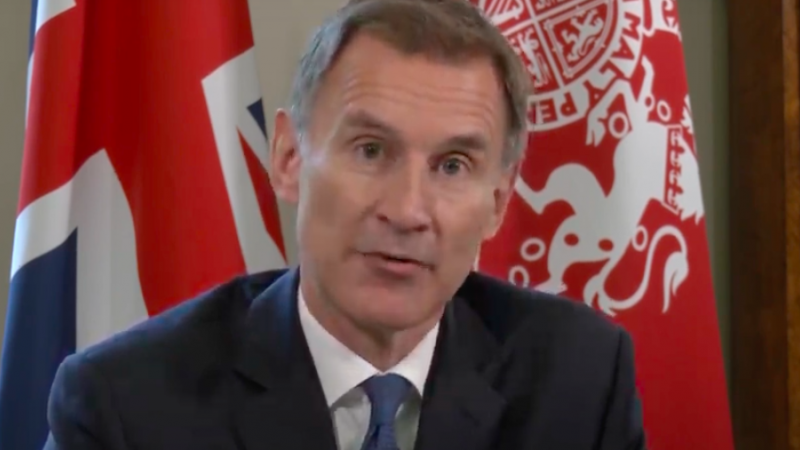Concerns have been raised that the chancellor’s deregulation drive could leave the UK’s financial sector vulnerable to crashes such as the one in 2008.

Jeremy Hunt has announced plans to ditch hundreds of EU finance regulations as part of a series a major reforms to the banking sector in Britain.
Hailed as ‘Edinburgh reforms’, when meeting finance chiefs in the Scottish capital on December 9, the chancellor set out plans to make over 30 major reforms, promising to ‘review, repeal and replace’ hundreds of EU regulations. He said the government wanted an “agile, proportionate and home-grown regulatory regime,” to help unlock more investment and jobs.
Insisting the government has a “golden opportunity” to use Brexit to remodel the financial industry, Hunt claims the EU’s rules were “choking” the UK’s economic growth. He vowed to change “burdensome EU laws that choke off growth in other industries such as digital technology and life sciences.” As part of what he referred to as plan to “turbocharge” growth, the chancellor is also issuing new mandates to the Financial Conduct Authority and the Prudential Regulation Authority.
The changes include a review of accountability rules for bankers and the easing of capital requirements for smaller lenders. Regulations seen to hinder growth or put businesses off listing in Britain will be overhauled. There will also be a loosening of the banking rules introduced after the 2008 financial crash, which saw some UK banks face potential collapse.
Warnings have been made the deregulation drive could leave the UK’s financial sector vulnerable to crashes such as the one in 2008.
Tulip Siddiq, Labour’s shadow city minister, said the ring-fencing rules which separate high street banking from investment were “introduced for good reason.”
“Introducing more risk and potentially more financial instability because you can’t control your backbenchers is this Tory government all over. That this comes after the Tories crashed our economy is beyond misguided,” said Siddiq.
Claire Cross, partner at Corker Binning law firm that specialises in finance, said the relaxing of regulations “will not, history suggests, end well.”
“We have already been through one cycle of light touch financial regulation which ultimately resulted in the 2008 financial crash,” said Cross.
Victoria Scholar of Interactive Investor shared similar concerns, saying: “There is a risk that the Treasury is acting myopically, quickly forgetting the pre-2008 excessive risk taking that ultimately led to the global financial crisis.”
Gabrielle Pickard-Whitehead is a contributing editor to Left Foot Forward
Left Foot Forward doesn't have the backing of big business or billionaires. We rely on the kind and generous support of ordinary people like you.
You can support hard-hitting journalism that holds the right to account, provides a forum for debate among progressives, and covers the stories the rest of the media ignore. Donate today.



